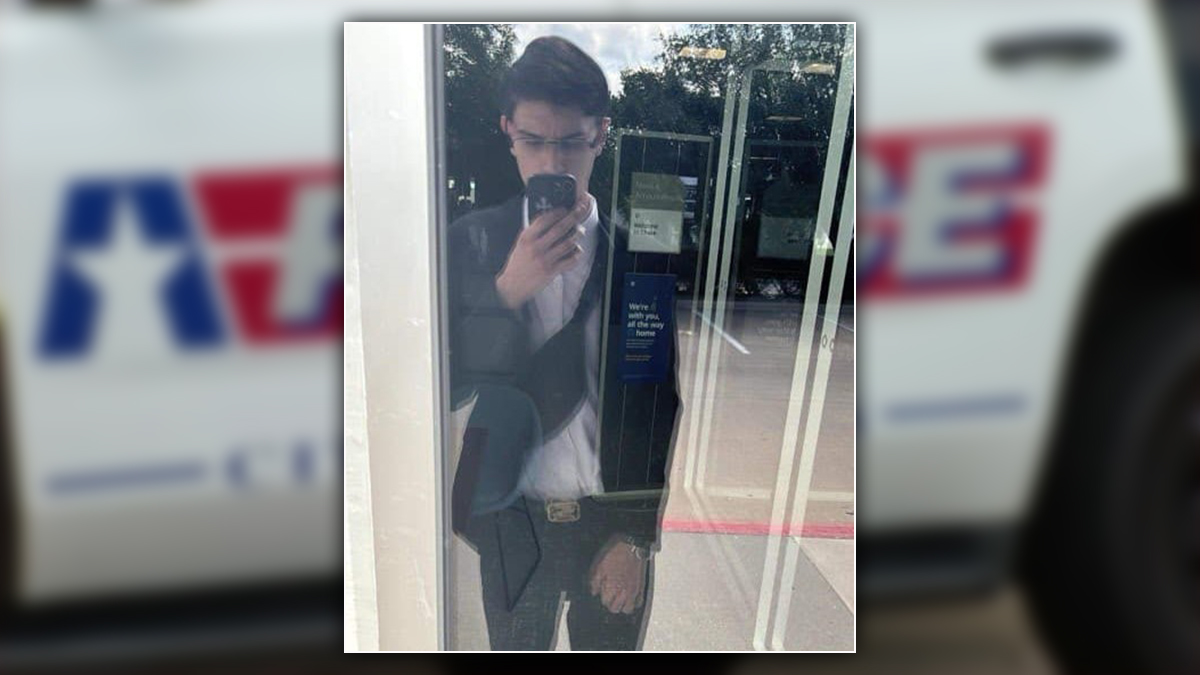David Bray moved into the Vista Ranch community in Tarrant County two years ago. He was aware his only way in and out of his neighborhood was to cross the railroad however he did not realize the risk it would pose.
“Never in my wildest dreams, I'd never thought to ask, you know, 'how often do they back up?' or 'how long can they be backed up for?'” Bray said. Bray also serves as the Vista Ranch HOA president.
"If you're inside the development, there's nowhere for you to go. If you're outside the development, you just have to wait until the train passes before you can go home,” Bray said.
Like Bray, neighbors said they have lost count of the times they have been blocked from their final destinations due to a Union Pacific train blocking the crossing for hours.
Get DFW local news, weather forecasts and entertainment stories to your inbox. Sign up for NBC DFW newsletters.
"It's very frustrating. It's also a concern if there's a medical emergency, if there's a fire. And if you look at the sign for the railroad crossing, there's no signage," Bray said. "The best communication that the homeowners have is just through our own Facebook page, and there's no other information that's pushed out directly to us."
Union Pacific confirmed the latest two blockages on October 24 and October 27 that left people landlocked for long periods.
“That's absolutely unacceptable,” Manny Ramírez, Precinct 4 Tarrant County Commissioner said.
Local
The latest news from around North Texas.
Ramírez said he was made aware of the years-long issue shortly after taking office in January of this year.
“I had staff immediately start working on a plan to provide a second entrance to this neighborhood,” Ramírez said. “To this point, we've actually already gotten the design about 60% of the way to build a second road, completely connecting the neighborhood with another alternative entrance and exit.”
Ramírez said the new access point could happen within a year.
Once the design of the road is near completion, Ramírez said, “…we're buying right-of-way, and then we're building. So, all of the wheels are in motion to provide that secondary access. And it's a top priority for our precinct.”
However, conversations with the private industry are just as important, according to Ramírez.
"We have had very frank and very constructive conversations with our partners at U.P.," Ramírez said. "We have to all come together to work with private industry, to work on the measures that we can with our government and road crews to make sure that we're solving the problem."
In addition to a 24/7 hotline already in place, Union Pacific said they are exploring short-term solutions including splitting trains that will be there for an extended period.
"We didn't just go to them with complaints. We went to them with suggestions," Ramírez said. "And I'm happy to say that U.P. is willing to do whatever they can to minimize the risk there."
“Our goal is to keep our trains moving, and we are committed to working with Tarrant County and other key stakeholders to identify both short-term and long-term solutions at this crossing,” a spokesperson for Union Pacific said in a statement to NBC 5.
Union Pacific was not able to provide a timeframe on when they could begin to split trains on Tinsley Lane.
“We understand the frustration of those impacted by occupied crossings, but it is important to remember that one train can remove hundreds of trucks from the highway, reducing congestion on our state and city highways,” a spokesperson for Union Pacific said.
"You're not getting anything from Amazon or Wal-Mart or anywhere else unless it came on a rail," Ramírez said. "But at the same time, we have to make sure that our residents are not trapped whenever logistical issues come up."
Still, neighbors who said they have dealt with this issue for more than ten years said they are skeptical changes will be made as no federal law limits the time a train can block a crossing.
“It's very frustrating,” Bray said.
Ramírez recognized this is not an isolated issue. He said as new developments are designed and built, he wants to ensure there are multiple access points.
"We understand, even if there's no rail crossing there, it's still dangerous," Ramírez said. "You have to have alternative exits to neighborhoods just for the safety of the community."



